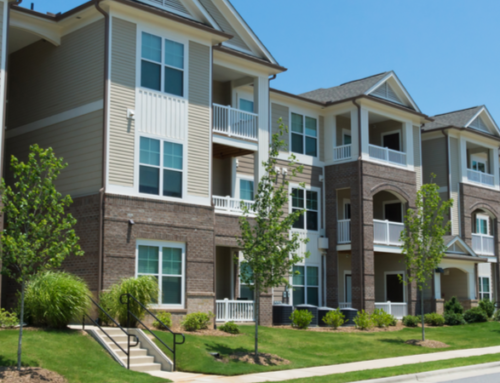When investing in real estate, you have to remember that time is usually your best friend.
That’s because it takes time for real estate to appreciate and for rents to go up. A property that might just break-even when you purchase it could generate substantial profits two to five years down the line.
How should you think about the finance side of investment real estate? Very carefully. Because if you miscalculate, you could wind up spending years trying to recoup your initial investment.
You must first decide what kind of investor you are. Are you the kind of person who will be intimately involved with your rental unit? Will you be on-site making all the repairs yourself? Or, are you the kind of person who hires other people to change a light bulb in your house?
Different types of properties have different needs. If you buy a single condo in a full-service building, you’ll have few maintenance hassles since the building may either have a full-time engineer on duty, or will know who to call if there’s a problem.
On the other hand, you may wind up paying special assessments on top of your regular monthly assessments, which could be steep in a full-service building.
If you buy a single-family house, however, you will need to spend more money maintaining and improving the property over the long haul. At some point in time, a house will need its roof replaced, its brickwork tuck pointed, its siding painted, its yard mowed – and that’s just on the outside.
If you purchase a multi-unit building, investors commonly trade off a portion of the rent to someone who can act as an on-site maintenance man for the property. If you live out of town, you may wish to hire a rental company to handle the leasing – and the problems – for a fee.
The next thing to do is to hire a real estate agent. If you’re buying a condominium or single family home, any buyer’s broker who is familiar with the neighborhood should be able to assist you. But if you’re looking for a multi-unit building, you’d be smart to make friends with a real estate agent who handles investment properties regularly.
Buying investment property is a different ballgame from buying property in which you intend to live. Agents who either invest themselves or assist other investors may be aware of important factors, such as how rental income plays into a purchase price, and can assist you in purchasing a better property.
While you may get lucky and find something wonderful just by knocking on doors, the hot real estate market of the past five years means plenty of novice investors have jumped in, bidding up prices for rental properties. It’s too easy to overpay if you don’t know what you’re doing. A good agent can be invaluable in this instance.
Finally, when it comes to finances, many first-time investors are surprised to find out it may cost them more to buy their property than they expected. Interest rates are at least a half of a percentage point higher than for owner-occupied residences. Your loan may also have a shorter term, a variable interest rate, higher fees, and a prepayment penalty. Also, you’ll be required to more down on the property than if you were buying something you expected to live in.
The appraisal is more expensive, since appraisers must find out what other renters pay for comparable units in the neighborhood. If you have a professional home inspector check out the property, you may pay the going rate for a single-family home, or a higher rate if he or she is checking out a 3-family building.
If you hope to finance your purchase based on the rent you expect will come in, be prepared to show the lender a signed lease. Without a signed lease, you’ll have a hard time proving what kind of rent the unit will generate.
(If the unit or building you’re buying is currently rented, you can show those leases to the lender. If you are buying a property you hope to lease out, you may need to find someone to rent the unit before the lender will agree to finance it.)
Also, don’t expect the lender to give you full credit for every dollar in rent you receive. Lenders will often base their financing on just 75 percent of future rents. That’s to give you a cushion in case you have a month or two each years where the unit isn’t rented – a common situation.
With all this to worry about, is it possible to purchase investment property and make money? Absolutely. But you need to make sure you know what you’re doing ahead of time in order to avoid getting in real trouble financially.






Leave A Comment